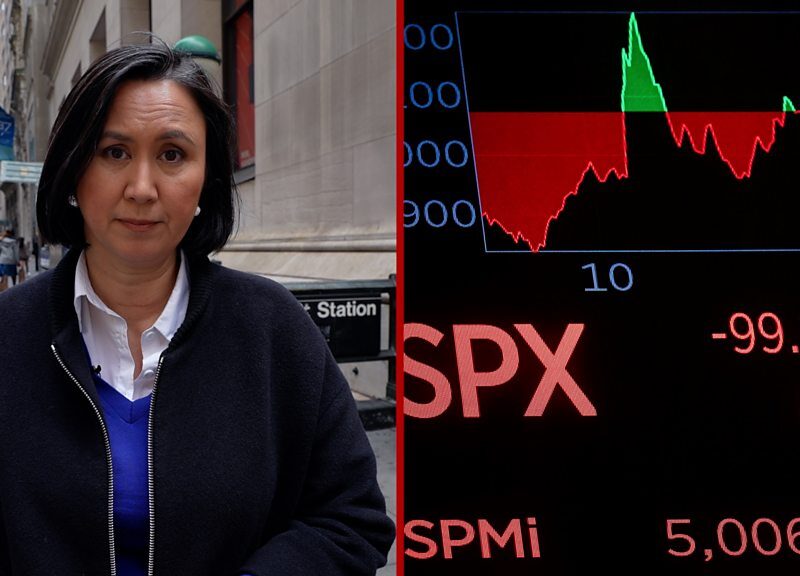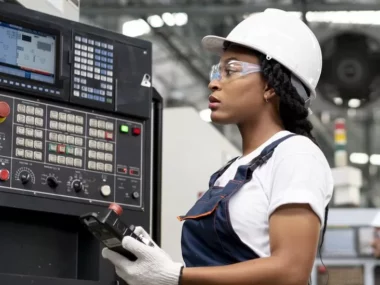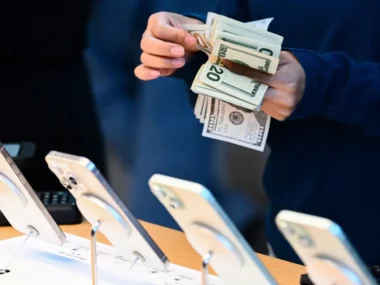Donald Trump has warned China of an additional 50% tariff on US imports if it does not revoke its 34% counter-tariff, as global markets continue to decline.
Beijing retaliated on Sunday after Trump’s decision last week to impose a 34% tax on Chinese imports as part of his “Liberation Day,” which set a minimum 10% levy on nearly all of America’s trading partners.
Trump posted on social media Monday, giving China until Tuesday to remove its countermeasure or face the 50% tariff.
In response, the Chinese embassy in the US accused Washington of “economic bullying” and stated that Beijing would “firmly safeguard its legitimate rights and interests.” If Trump follows through on his threat, US companies could face a combined rate of 104% on Chinese imports, as it would be added to the 20% tariffs already imposed in March and the 34% announced last week.
This escalation could further deepen the trade war between the world’s two largest economies.
In his Truth Social post, Trump also warned that all talks with China regarding their tariff meetings would be terminated.
On Monday, the US president stated that he was not considering suspending global import tariffs to allow negotiations with other countries. “We’re not looking at that. We have many, many countries coming to negotiate deals with us, and there are going to be fair deals,” he said.
Trump added that China introduced its countermeasure “despite my warning that any country retaliating against the U.S. by issuing additional tariffs… will immediately face new and substantially higher tariffs.”
In return, Beijing argued that “pressuring or threatening China is not the right way to engage.” Chinese embassy spokesman Liu Pengyu stated that the US’s “hegemonic move in the name of ‘reciprocity’ serves its selfish interests at the expense of other countries’ legitimate interests and puts ‘America first’ over international rules,” calling it a clear example of unilateralism, protectionism, and economic bullying.
At the White House, Trump mentioned the possibility of both permanent tariffs and negotiations, adding that the US was negotiating with China and other countries to secure “fair and good deals.” “It’s now America first,” he declared.
The proposed tariffs would significantly impact Chinese manufacturers, as the US is a key market for Chinese exports, which include electrical products, machinery, computers, furniture, toys, vehicles, and equipment. The US’s top exports to China include oilseeds, grains, aircraft, machinery, and pharmaceuticals.
Global stock markets faced volatility due to tariff uncertainty. Following Trump’s global tariff announcement, markets have tumbled, with US stock markets dropping sharply on Monday, and Europe’s major markets, including London’s FTSE 100, closing over 4% lower. Asian markets also fell, with Hong Kong’s Hang Seng index experiencing its largest single-day drop since 1997. However, most markets showed slight recovery on Tuesday. The broader impact was felt across the FTSE 100, S&P 500, Germany’s DAX, and Japan’s Nikkei.

A cargo ship at the Qianwan Container Terminal in Qingdao, China
Negotiations
In his recent post on Monday, President Trump mentioned that tariff rate negotiations would commence immediately. He met with Israeli Prime Minister Benjamin Netanyahu, who emphasized that Israel would work swiftly to eliminate the trade imbalance with the US and reduce trade barriers. Starting on April 9, Israel will face a 17% tariff under Trump’s “Liberation Day” policy.
Trump also shared that Japan would be sending a negotiation team to discuss tariffs. Additionally, Ursula von der Leyen, President of the European Commission, proposed a “zero-for-zero tariff” deal. However, she also warned of potential countermeasures if needed, asserting that the EU would defend its interests. Trump later stated that the EU was created to harm US trade interests.











